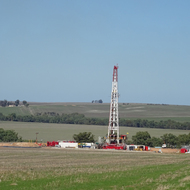Report on hydraulic fracturing identifies low risk for WA.
| Date: | Wednesday, 18 November 2015 |
|---|
Findings from a two-year Parliamentary inquiry have shown that Western Australia’s regulators are well prepared to manage the developing shale and tight gas industry and associated hydraulic fracturing processes.
The Standing Committee on Environment and Public Affairs report, Implications for Western Australia of Hydraulic Fracturing for Unconventional Gas, identified a low risk of hydraulic fracturing technology having negative impacts on environment, water resources and public health.
The committee examined the agencies involved in the regulation of hydraulic fracturing in detail to determine if regulators are prepared to regulate onshore hydraulic fracturing the onshore gas industry could present.
The inquiry investigated the main areas of concern raised by the community, including:
- land access and the rights of resource companies to enter onto private land
- the use of chemicals during the process and their potential risks
- how much water is used and alternatives to taking water from aquifers and
- the legacy of hydraulic fracturing on land and on communities.
The committee found that improved its regulatory processes and compliance activities by the Department of Mines and Petroleum provided sufficient safeguards to manage the developing industry.
It also found that water source protection policies in place were also adequate to protect Public Drinking Water Source Areas.
The committee identified that there is significant community concern about the risks associated with hydraulic fracturing, but highlighted there was also a level of misinformation being presented that may cause confusion and mistrust within communities.
Mines and Petroleum Minister Bill Marmion welcomed the report saying it focuses on an industry that could be very important for Western Australia's energy future, and for local jobs in particular.
The Minister said the State Government would carefully analyse the 51 findings and 12 recommendations and respond in due course.
"The bottom line is that we are committed to protecting public health, water supplies and the environment, along with farming, horticulture and tourism assets - in line with community and landowners' values and expectations," Mr Marmion said.
The report was tabled in Parliament on 17 November and is available at www.parliament.wa.gov.au/env, open the Reports tab to locate the document.

